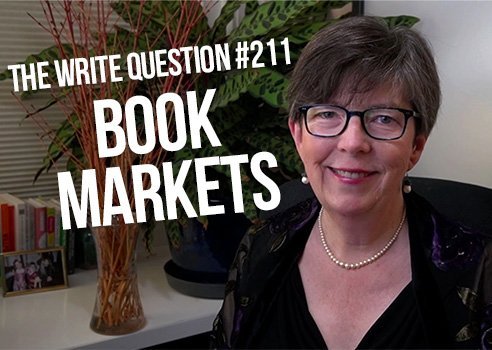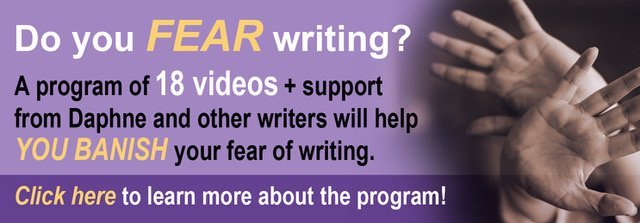Viewing time: 4 mins 27 secs
The Write Question is a weekly video podcast all about writing. Today’s question? Is there a market for historical fiction right now? If you have a question you’d like me to answer you can email me, tweet me @pubcoach, or leave a message for me at the Skype account, The Write Question.
Transcript:
Is there a market for historical fiction right now? That’s the topic I’m addressing today in The Write Question. I’m Daphne Gray-Grant, the Publication Coach.
I have a question from Pamela Rhodes, a writer based in Wilmington, Delaware. Here’s what she’s asked by email…
“I’m a research nut and I have a big interest in historical fiction. I’d like to try my hand at writing that type of novel but I’m wondering if there’s actually any market for this genre right now?”
Thanks for your question Pamela. You describe yourself as a research nut, so I’m going to assume you find research to be fun, rewarding and interesting. Is that the case?
And if you’re willing to take on the challenging and time-consuming job of writing a novel, I’m also going to assume that you find some part of that idea to be fun and rewarding, too.
So, if my assumptions are correct, I suggest you let go of any concerns about making money with the project, and just write for your own pleasure.
Here’s why: it’s a mug’s game to predict which genres are going to be ‘marketable’ by the time your book is finished. Look at J.K. Rowling for example. When she wrote her first Harry Potter book, wizards were not a particularly saleable genre. But Rowling changed all that! And then here’s what happened:
Other writers figured that wizards were a particularly “marketable genre”, and in a couple of years, we had way too many wizard books in the marketplace.
You can’t predict markets in advance. You can only describe them in retrospect.
Here’s another important point you should keep in mind: it’s awfully hard to make a living writing books. Sure, a handful of people manage it, just as a handful of people become movie stars.
But the vast majority of writers who are able to get deals with traditional publishing houses don’t even earn back the advance they are paid.
An advance is a kind of a signing bonus or pre-payment that publishers offer when they accept your book. It’s paid against future royalty earnings, which means that for every dollar you receive in an advance, you must earn a dollar from book sales before you start receiving any additional royalty payments.
So, for example, if you were to receive a $5,000 advance with a royalty rate of $1 per book sold (royalties are measured in percentages, but let’s keep it simple here), you’d have to sell 5,000 books to pay off your advance.
If your book doesn’t sell enough to earn back the advance, you don’t have to return the balance to the publisher. But the point I’m trying to make is that the vast majority of book authors don’t earn back their advance.
Essentially, publishers expect to lose money on most of the books they publish. And, of course, they expect to make a huge windfall on a very small number.
This is the reason why some people like to joke that book publishing is a non-profit industry.
In any case, I never suggest that writers spend time looking at markets to gauge what genre is the most saleable. Instead, write what interests and intrigues you.
Finally, let me wrap up with the words of Canadian author Guy Vanderhaeghe: “History tells us what people do. Historical fiction helps us imagine how they felt.”
Pamela, if you have a passion for historical fiction then that’s what you should write. The writing will be more fulfilling and enjoyable for you and if you’re able to get a successful book deal at the end, that will be great. But even if you don’t, you’ll have spent some rewarding and interesting hours working on a project you enjoy.
*
Viewers, if you have any writing-related questions, I’d be happy to do a video on them. Just send me a quick email, daphne@publicationcoach.com, or put a note in the comments section of this YouTube channel.
And, if you’d like to learn more about how to make writing a happier and more rewarding process, check out my latest book Your Happy First Draft. I don’t sell it in bookstores or via Amazon. The only place to buy it is on my website, link on the screen below and in the show notes.


